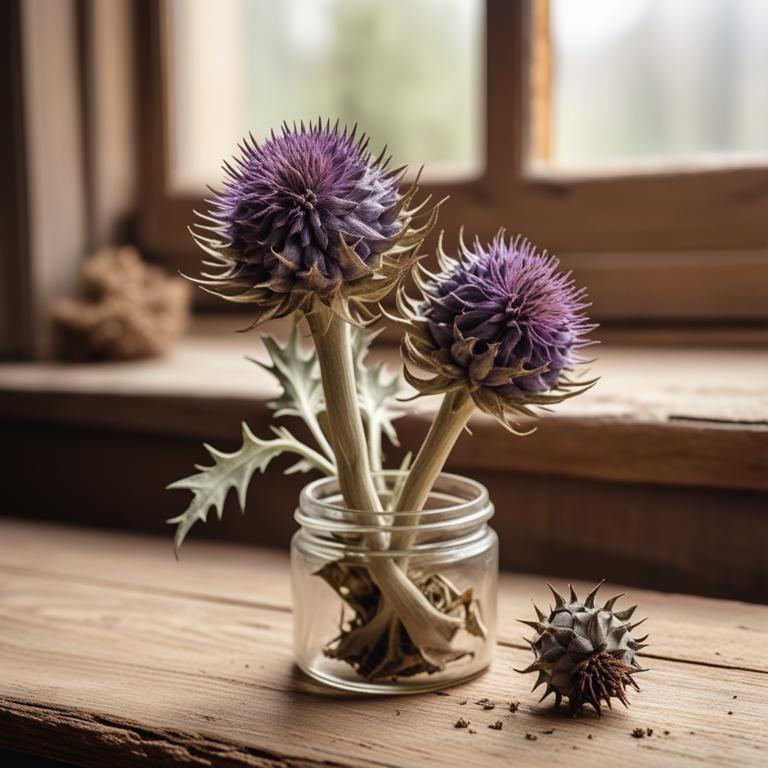Updated: Dec 1, 2024
Chickenpox: Causes, Medicinal Herbs, and Natural Cures
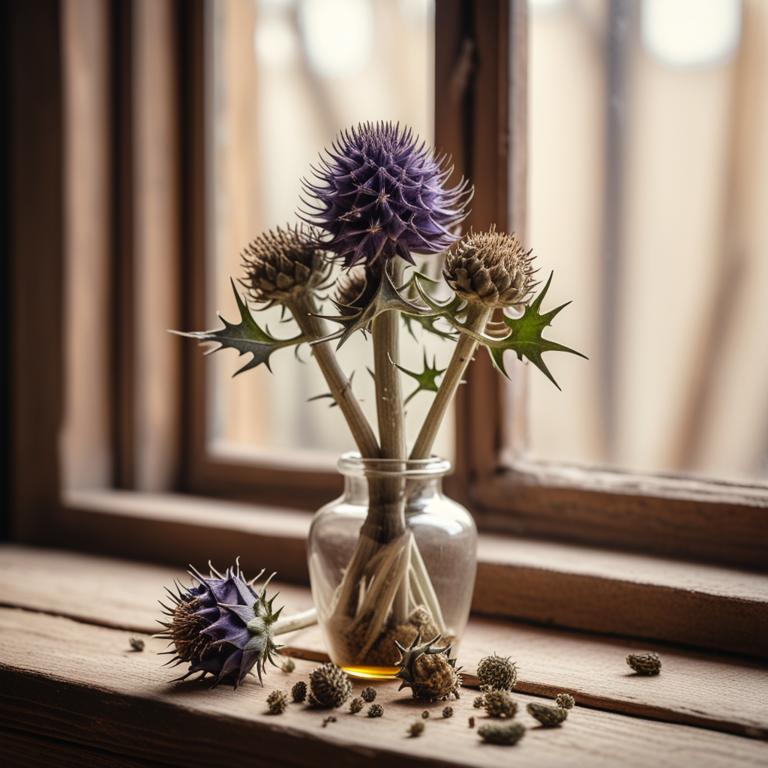
Chickenpox is a common illness that affects many people, especially children.
It's caused by the varicella-zoster virus, which spreads through the air when an infected person coughs or sneezes. When you get chickenpox, you'll likely experience a fever, headaches, and a painful rash that covers your body. The rash turns into itchy, blister-like sores that can make everyday life uncomfortable and even painful. Herbal remedies can help alleviate some of the symptoms associated with chickenpox. One of the key herbs used to treat the condition is calendula, which is known for its anti-inflammatory and soothing properties. Calendula can be taken as a tea, made by steeping dried calendula flowers in hot water.
The tea can be sipped throughout the day to help reduce fever and alleviate the discomfort of the rash. Another herb used to treat chickenpox is echinacea, which is said to boost the immune system and help the body fight off the infection. Echinacea can be consumed as a tea, or taken in capsule form. Some people also use aloe vera gel to soothe and calm the skin, reducing the itchiness and discomfort of the rash. In addition to these herbs, some people turn to herbal ointments and salves to help heal the skin. Oatmeal baths are also a popular remedy, as the oatmeal helps to soothe and calm the skin.
These herbal remedies can be used in conjunction with medical treatment to help alleviate the symptoms of chickenpox and speed up the recovery process.
Table of Contents
- What is responsible for the appearance of chickenpox?
- What benefits can herbs offer in the natural treatment of chickenpox?
- What are the primary medicinal herbs for treating chickenpox?
- What herbal treatments are typically used to help alleviate symptoms of chickenpox?
- Are there any herbs that are not suitable for someone with chickenpox?
- FAQ
What is responsible for the appearance of chickenpox?
The main causes of chickenpox are complex and involve a combination of factors.
Varicella-Zoster is a key player, as it's the virus that causes chickenpox in the first place. When someone with chickenpox coughs or sneezes, they release the virus into the air, making it easy to spread. Another factor is being immunocompromised, meaning your immune system is weakened. This can happen due to various reasons like taking certain medications, having a chronic illness, or a weakened immune system due to age. When you're immunocompromised, your body can't fight off the Varicella-Zoster virus, making it easier for you to catch chickenpox. Genetic predisposition also plays a role, as some people are more prone to catching chickenpox due to their genetic makeup. This is because some genes can affect how your immune system responds to the virus.
Social contact is another major contributor. When people with chickenpox come into close contact with others, they can easily spread the virus. This is especially true in schools, daycare centers, and other places where people are in close proximity. Interestingly, even having a Varicella vaccine doesn't guarantee complete protection against chickenpox. The vaccine is about 85% effective in preventing chickenpox, but it's not 100%. This means that some people who get vaccinated can still catch chickenpox. Lastly, age is a significant factor, as chickenpox is most common in young children.
This is because younger children are more likely to come into contact with someone who has chickenpox, and their immune systems are still developing, making them more susceptible to the virus.
What benefits can herbs offer in the natural treatment of chickenpox?
Using these special plants for chickenpox can bring many benefits.
They can help to reduce the severity of the symptoms, making it easier for children to feel comfortable. These plants have anti-inflammatory properties, which can soothe the itchy and painful rash.
They can also help to speed up the healing process, reducing the duration of the illness. Additionally, they can help to boost the immune system, making the child less likely to develop complications from the illness. Some of these plants have antiviral properties, which can help to fight off the virus that causes chickenpox.
They can also help to reduce the risk of scarring from the rash, leaving the child with a smoother and more even skin tone.
What are the primary medicinal herbs for treating chickenpox?

When someone gets chickenpox, they feel pretty miserable.
Their skin is itchy and sore, and they might even get a fever. But some herbs can help make them feel a bit better. Echinacea purpurea, for example, is known for boosting the immune system, which can help fight off the infection.
Urtica dioica, or stinging nettle, has anti-inflammatory properties that can reduce the itching and swelling. Aloe barbadensis, or aloe vera gel, is a soothing moisturizer that can calm down the itchy skin. Ginger, or Zingiber officinale, has anti-inflammatory properties that can help reduce pain and swelling. And, of course, Aloe vera is a popular remedy for soothing burns and skin irritations, which makes it perfect for chickenpox rash.
Using these herbs can help make the symptoms of chickenpox more manageable, and might even help the person feel a bit more comfortable while they recover.
What herbal treatments are typically used to help alleviate symptoms of chickenpox?

Herbal preparations can be very helpful when it comes to soothing chickenpox symptoms.
A decoction of calendula and chamomile can be used as a compress to reduce itching and inflammation. This is because the cooling properties of these herbs can help bring down the swelling and ease the discomfort. A tea made from licorice root and marshmallow can be sipped to calm the body and mind. This can help reduce stress and promote better sleep, which is essential for recovery. An infusion of plantain and dandelion can be applied topically to speed up healing and reduce scarring.
These herbs have anti-inflammatory properties that can help bring down the redness and swelling associated with chickenpox. A cream made from aloe vera can be applied directly to the affected areas to soothe and moisturize the skin. This can help prevent dryness and cracking, which can lead to further irritation and infection. A salve made from tea tree oil and eucalyptus can be applied to help fight off any secondary infections that may arise. These herbs have antimicrobial properties that can help keep the skin clean and free from bacteria.
These herbal preparations can be a natural and gentle way to manage chickenpox symptoms, and can be used in conjunction with conventional medical treatment.
Additional Resources:
Are there any herbs that are not suitable for someone with chickenpox?
If you have chickenpox, it's best to avoid using certain herbs to help your body heal.
Valeriana officinalis, also known as valerian root, can affect how your body deals with the virus. Some studies suggest it can slow down the immune system, which might make your symptoms last longer. Panax ginseng is another herb you should be cautious with. It can increase your blood pressure, and if you're taking certain medications for chickenpox, this could lead to complications.
Ginkgo biloba, often used to improve blood flow, can thin the blood and make it harder for your body to fight off the infection. Glycyrrhiza glabra, or licorice root, contains a compound that can raise your blood pressure even more, which is not good if you're already taking medications for chickenpox. This can also cause your kidneys to work harder, putting extra strain on your body. Hydrastis canadensis, or goldenseal, contains a compound that can interact with certain medications for chickenpox, making them less effective.
It can also increase the risk of bleeding, which is not what you need when you're already dealing with a viral infection.
FAQ
Are there any specific herbs that can prevent chickenpox?
There isn't a specific herb that can completely prevent chickenpox.
However, some herbs like Echinacea and Astragalus are believed to help boost the immune system, which may reduce the severity and duration of the illness. They may also help prevent other viral infections.
But it's essential to note that these herbs are not a guaranteed solution.
Is it safe to use herbal remedies for chickenpox during pregnancy?
It's best to avoid using herbal remedies for chickenpox during pregnancy.
Some herbs might not be tested for safety in pregnant women, and it's not clear how they could affect the baby.
If you have chickenpox while pregnant, talk to your healthcare provider about the best course of action.
Are there any herbs that can reduce the frequency of chickenpox?
Echinacea and calendula are two herbs that may help reduce the frequency and severity of chickenpox.
Some people use them to support their immune system and ease symptoms. These herbs are often available in supplement form or as a topical cream.
They may help your body fight off the virus and recover faster.
Can i combine different herbal remedies for chickenpox?
You can try combining different herbal remedies for chickenpox, but be cautious.
Some herbs might interact with each other or make your symptoms worse. For example, if you're taking calendula for its anti-inflammatory properties, it might not mix well with echinacea, which can stimulate your immune system.
Just remember to use them in moderation and listen to your body's response.
Related Articles
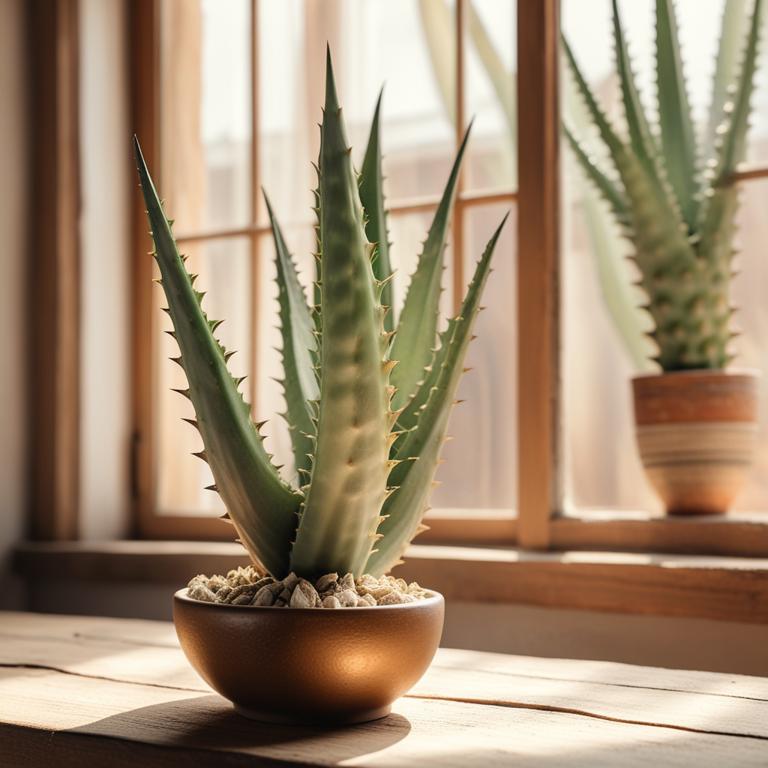
Ringworm Treatment with Medicinal Herbs and Herbal Preparations
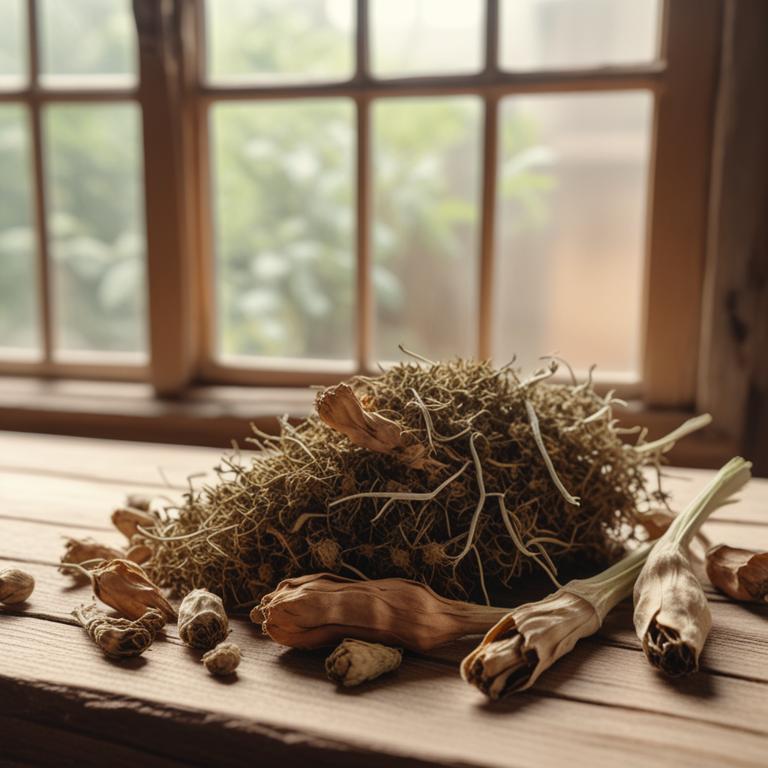
Fungal Skin Infection: Causes, Treatment with Medicinal Herbs, and Prevention
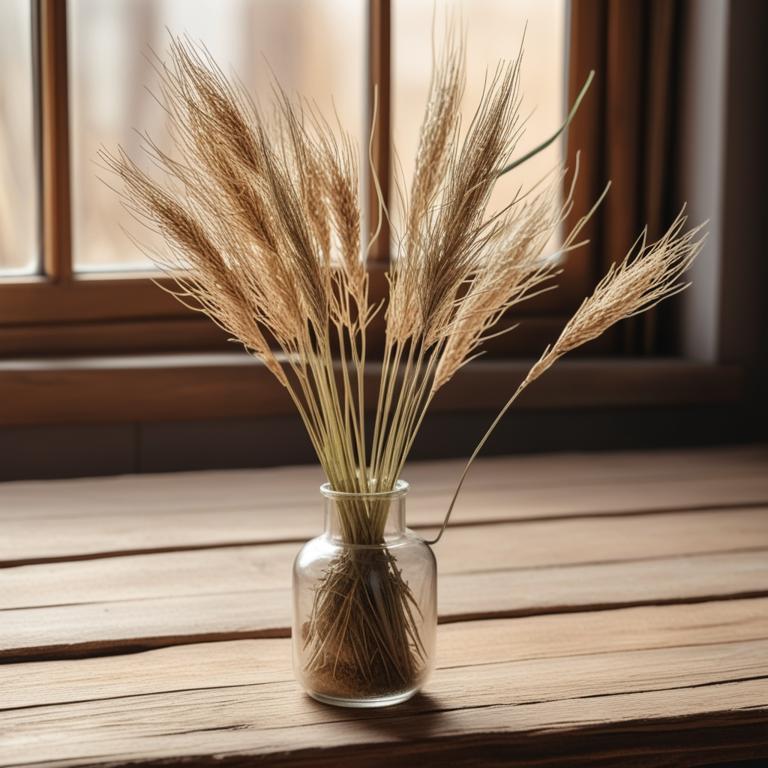
Dandruff: Causes, Symptoms, and Natural Treatments with Medicinal Herbs

Causes, Herbal Solutions, and Preparations for Mouth Ulcers
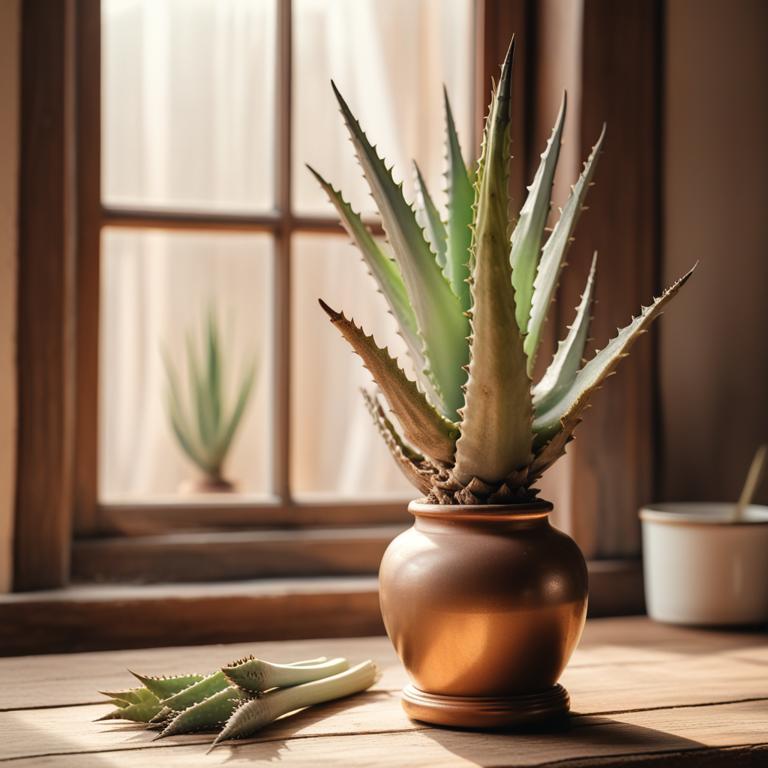
Acne Remedies: Causes, Medicinal Herbs, and Natural Herbal Preparations




